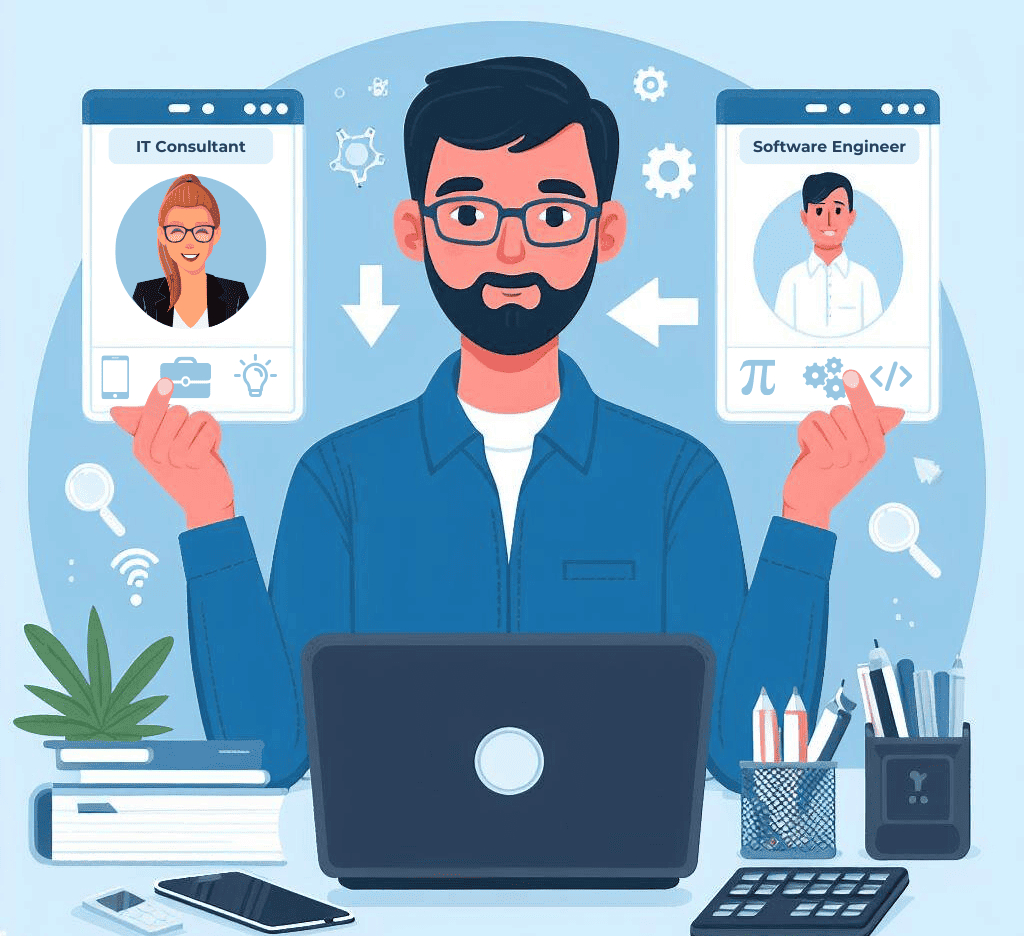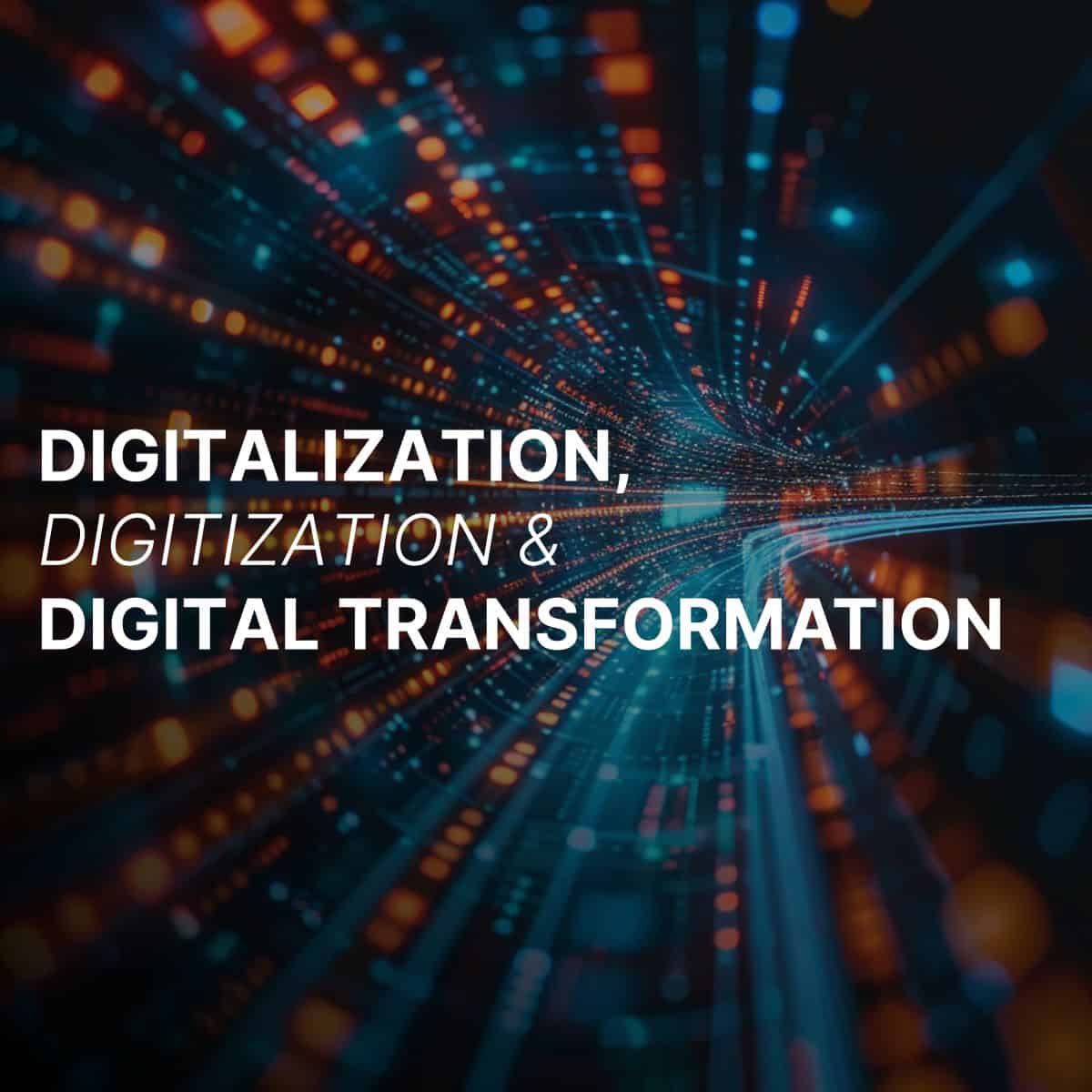In 2026, the line between IT consulting and software engineering is thinner than ever and that’s by design.
AI, automation, and data-driven delivery models have redefined how organizations plan, build, and optimize technology. According to Gartner (2025), 65% of IT roles now blend consulting, AI, and engineering functions, creating hybrid professionals who can both architect strategy and execute solutions.
Whether you’re considering a career path or hiring for a digital transformation project, understanding how these two roles differ (and intersect) is key to building the right team.
What an IT Consultant Does (in 2026)
IT consultants are no longer just advisors, they’re strategic enablers of digital transformation.
They bridge business goals with technology implementation, often overseeing how organizations adopt AI, cloud, and automation at scale.
Core responsibilities:
- Strategic alignment: Advising executives on how to integrate technology into business models.
- AI readiness: Designing frameworks that incorporate automation, data analytics, and machine learning safely.
- Process optimization: Identifying inefficiencies and deploying digital tools to improve workflows.
- Change management: Helping teams adapt to new systems and ways of working.
A global healthcare provider might hire an IT consultant to create a secure AI data pipeline compliant with HIPAA connecting legacy systems to cloud-based analytics.
What a Software Engineer Does (and Why AI Is Changing the Game)
Software engineers remain the builders but in 2026, they’re also AI collaborators.
With tools like GitHub Copilot, Tabnine, and Replit Ghostwriter, engineers automate up to 40% of repetitive coding tasks (source: Stack Overflow Developer Survey 2025).
That frees them to focus on design, architecture, and AI integration.
Core responsibilities:
- Software design & architecture: Building scalable, secure, and efficient systems.
- AI integration: Embedding ML models and automation APIs into products.
- Performance engineering: Ensuring cloud-native applications run efficiently at scale.
- Continuous delivery: Using CI/CD pipelines and DevOps practices for faster releases.
Example: A fintech company’s software engineer might build an AI-driven fraud detection module using Python, TensorFlow, and Azure Machine Learning.
Education & Skills: The New Hybrid Standard
The educational path for both roles is evolving as AI and data literacy become non-negotiable.
| Area | IT Consultant | Software Engineer |
| Preferred Degrees | Computer Science, Information Systems, Business Analytics, or AI Strategy | Computer Science, Software Engineering, Data Science, or Computer Engineering |
| Core Skills (2026) | Cloud consulting, AI strategy, data governance, process automation, stakeholder communication | Programming (Python, Java, Go), AI frameworks, system architecture, DevOps, cybersecurity |
| Certifications (in demand) | AWS Certified Solutions Architect, Microsoft AI Engineer, Scrum Master, TOGAF | AWS Developer Associate, TensorFlow Developer, Azure DevOps Engineer, Kubernetes Administrator |
According to Coursera’s 2025 Global Skills Report, AI literacy and data storytelling are the top emerging skills across both consulting and engineering roles.
Work Environment & Career Trajectory
| Aspect | IT Consultant | Software Engineer |
| Focus | Business transformation, technology adoption, AI strategy | Software creation, automation, and system reliability |
| Work model | Consulting firms, nearshore delivery centers, independent advisory | Product companies, SaaS startups, enterprise IT teams |
| Tools | Power BI, ServiceNow, Salesforce, Jira, Miro, Azure AI | GitHub, Docker, Kubernetes, TensorFlow, React, AWS |
| Career growth | Senior Consultant → Practice Lead → CTO/Strategy Director | Senior Engineer → Architect → Engineering Manager/CTO |
| AI adoption level (2026) | 73% use AI-assisted project planning (Accenture, 2025) | 81% use AI-assisted coding or testing (GitHub, 2025) |
The future is convergent, IT consultants need deep technical fluency, and engineers need strategic awareness.
The Rise of Hybrid Roles
New job titles like AI Solutions Architect, Tech Strategy Engineer, and Digital Transformation Specialist are merging both disciplines.
LinkedIn’s 2025 Global Workforce Report found that hybrid tech-strategy roles have grown by 27% YoY, driven by demand for professionals who understand both business and engineering.
These professionals can architect a full lifecycle: from digital strategy design → to product development → to AI optimization, a model reflected in unosquare’s Centers of Excellence (CoEs) for Data, AI, and Cloud.
Which Career Path Pays More in 2026?
While salaries vary by region and experience, Glassdoor) and PayScale report:
| Role | Average Annual Salary (U.S.) | Growth Rate YoY |
| IT Consultant | $102,000 – $140,000 | +6% |
| Software Engineer | $115,000 – $155,000 | +8% |
| AI/ML Software Engineer | $145,000 – $180,000 | +12% |
Engineers tend to earn more due to technical specialization, while consultants often gain bonuses for project delivery or client retention.
Can a Software Engineer Become a Consultant?
Absolutely and in 2026, it’s increasingly common.
A Harvard Business Review study shows 42% of senior consultants started in software engineering, leveraging their technical background to design smarter, AI-powered business solutions.
The reverse is also true: many IT consultants learn coding to prototype automation solutions faster.
Choosing Between IT Consulting and Software Engineering
Your choice depends on what drives you:
- If you thrive on variety, business impact, and strategy, IT consulting is your lane.
- If you love technical depth, creation, and innovation, software engineering is your path.
Both roles now intersect through AI and automation; meaning the smartest professionals are those who can speak both “business” and “code.”
The Bottom Line: In 2026, Collaboration Wins
At unosquare, we’ve seen firsthand how successful organizations merge both roles within integrated teams, IT consultants setting the digital roadmap, software engineers bringing it to life.
Through our Distributed Agile Framework and AI-driven delivery, we help clients build high-performing hybrid teams that accelerate innovation while maintaining operational excellence. Whether you’re hiring, building, or pivoting your career remember this: The future doesn’t belong to coders or consultants. It belongs to those who can bridge both worlds.



